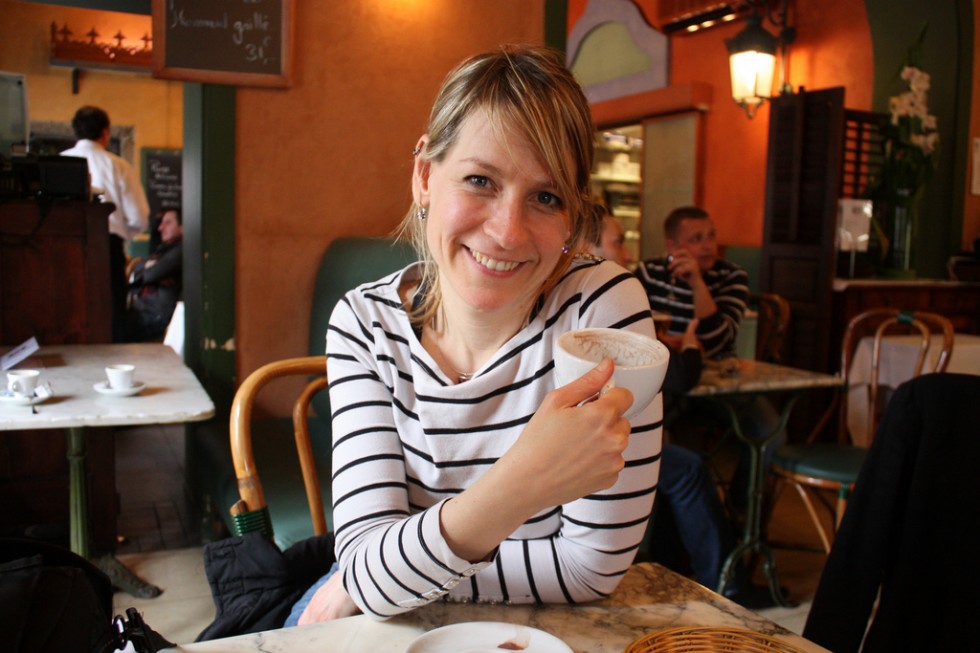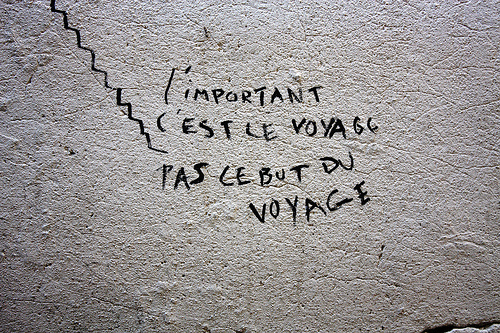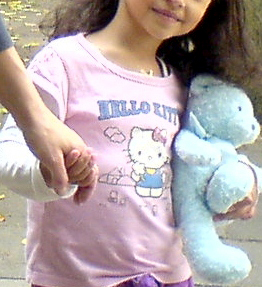Kristin Louise Duncombe is a psychotherapist who specializes in working with international and expatriate families in Paris and Lyon.
She is the author of Trailing: A Memoir, which chronicles her experience as a “trailing spouse” who followed her Médecins Sans Frontières husband to the frontlines of disaster and disease in East Africa.
Find below an interview where she discusses “trailing,” being a Third Culture Kid (Duncombe grew up travelling the world with her diplomatic family), and the “dark side” of the expatriate life.
What gave you the idea to write Trailing?
There are really three main reasons I wrote the book. The first is because I wanted to recount what it was like for me, a young wife and budding professional, to accompany my husband on his career path, putting my own aspirations into question. That there are thousands of “trailing spouses” in the world today, and that there are so many implications associated with “trailing,” makes this phenomenon an important one to describe.
While every story is unique, many of the issues I struggled with – identity loss, not knowing how to fit in or craft a new life, resentment towards my husband – are “universals” for many accompanying spouses.
The second motivation I had in writing Trailing was to describe the public health crises, and the suffering and injustice that the work of MSF opened my eyes to. I grew up in Africa and Southeast Asia, and while of course I was aware of the poverty around me, my diplomatic childhood was very sheltered and I never got as close to the suffering of others as I did when I was attached to the Médecins Sans Frontières team. It was a very impacting discovery for me.

Finally, I wrote Trailing because after we were violently carjacked one night in Nairobi, I had a need (several years later) to process this trauma in a narrative way. I wanted to describe the trauma, and the ensuing anxiety and depression in accessible terms, so as to illustrate the impact these mental conditions can have on quality of life and in turn, interpersonal relationships.
What do you mean by the “dark side” of the expatriate life?
There is something very glamorous about the global expatriate lifestyle.
Whether you are posted to “famous” capitals like Paris, London or Geneva, or to more exotic places like Jakarta or Kampala, the reaction of geographically “sedentary” people back home (wherever “home” may be) tends to be focused on the prestige of an international career, the allure of international travel and the cosmopolitan life.
This fascination, which most of us expats internalize to a certain degree ourselves, can mask some of the other tougher realities of frequent international relocation: namely, loss of community, loss of attachment, loss of identity. Most people are resilient enough to turn these losses into strengths that they can learn from.
That said, for the accompanying spouse who does not land in the new country with a neatly pre-packaged life (school for the kids, and for the working member of the couple, the job and its accompanying social contacts and salary), these losses can be far more challenging to deal with.
For the accompanying spouse, no matter how fabulous the new country is, “trailing” often means struggling to set up the infrastructure of a new life, and that includes re-discovering and/or re-defining what provides a sense of meaning and purpose to one’s existence.
The absence of this sense of meaning and purpose can lead to depression and anxiety, which in turn can lead to any number of other problems, such as marital tension and substance abuse.
What got you interested in this topic?
I am a Foreign Service brat, so I know firsthand what it means to move across the world every couple of years because of someone else’s obligations. I know how much my own mother missed having a consistent network of friends, as well as the stress and strain of packing and moving, living out of suitcases and basically having one’s life dictated by the requirements of the job.
My father had an important representational role at every Embassy we were posted at, and therefore had to entertain a lot – big soirées, cocktail parties for 150 people…. My mother always played along nicely but I know it was a strain!
I never imagined that I would become a trailing spouse myself. I moved back to the States at age 18, gung ho about American college and career (I knew early on what I hoped to do with my life).
What I hadn’t counted on was how hard it was going to be to move back “home.” In therapy circles we talk about the “hidden immigrant” syndrome — someone who appears to fit in because of shared language and culture (I call this the passport culture) but who inside feels a total outsider.
I was a total hidden immigrant, and as a result made all sorts of poor choices as a young adult. It didn’t help that my parents were posted to Nigeria (!) by the time I was really flailing and needed their guidance. This was well before the age of internet, of course, and even affordable international telephoning…..Then I met my husband, who is Argentinian, and he seemed the perfect “solution:” as foreign as I felt, and with a career that would define me (so I thought!) I had no idea what I was getting into!!
So describe the dark side.
Let me start by saying different people, different marriages, different expectations from an expat experience. Everyone copes differently.
In my case, when I agreed to follow my husband to Kenya , I already had deeply ingrained ideas about what being an accompanying spouse meant. The adjectives I would use include comfortable, cushioned, sheltered, pampered…My diplomatic childhood could certainly be described that way.
With Médecins Sans Frontières I unknowingly signed on to being the wife in an organization that reserves only the tiniest fraction of its budget for staff “comfort”. There was basically no logistical support for “non-essential” people- so no driver to take me shopping, no phone, and certainly no luxurious house to hunker down in. We lived en equipe — with the team– a very intense, hardcore group of aid workers whose lives were defined by the medical emergencies that were endless in Kenya and its neighboring countries.
When we arrived in Kenya, my husband hit the ground running, and I was on my own to figure out how to start a life. I was young, insecure, and totally lost. Seeing the dedication of the team made me instantly regret having abandoned my own career plans — and when I couldn’t find work, I really plunged into depression, anxiety…despair! So what did I do? Picked fights with my husband!
I resented him hugely for having this interesting, engaged life while I sat around idle. Seven months in, when I had finally gotten on my feet professionally (sort of), we were violently carjacked. The trauma of that experience compounded the depression I was still struggling with.
What advice would you give to other trailing spouses?
I can’t emphasize enough how important it is to identify what provides a sense of meaning and purpose in our life.
For those of us who are career oriented but cannot work because of visa restrictions, the trailing experience can actually be a blessing in disguise. While it is wonderful to earn a salary and feel financially independent, not being able to do so but staying active nonetheless forces us to stretch ourselves in ways we may not have if we had a job to pad our experience.
I encourage the expat spouses I work with to think about the “unfinished” parts of their lives — hobbies they dropped (or always wanted to try but didn’t), relationships they didn’t pursue, personal goals such as fitness or further study, etc and to stick to structured plans to pursue these objectives.
I also encourage expat spouses to reiterate their own identity. For example, Jane Smith may be the wife of the US Ambassador, but she will hopefully maintain – in the public sphere – that she is Jane Smith, journalist, yoga practitioner, master baker, mother of two, oh, and wife to Joe Smith who is the Ambassador.
In the expat circuit we can never fully define ourselves outside of who our spouse and sponsoring agency is. But if we act consciously, we can establish that in addition to those defining “titles,” we are also active individuals with our own defining characteristics and objectives. This exercise is not to impress anyone on the outside, but more so to not lose a sense of ourselves.
This post was written by Kristin Louise Duncombe
Kristin Louise Duncombe is an American psychotherapist, consultant and writer, who divides her time between Paris and Lyon. She is the author of Trailing: A Memoir.
For more information visit her website at www.kristinduncombe.com
Photos credit and copyright Kristin Louise Duncombe







2 comments
Thank you for sharing your story, you speak for many trailing spouses and TCKs. Many of us can relate to parts of your experiences though not exactly identical and not in Kenya only. Writing about ones traumatic experiences whether related to a loved one in the line of duty or friends we know, helps a lot in the healing process.